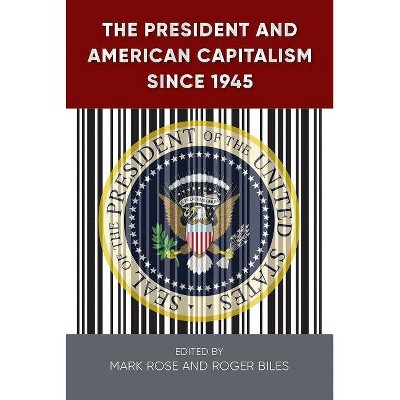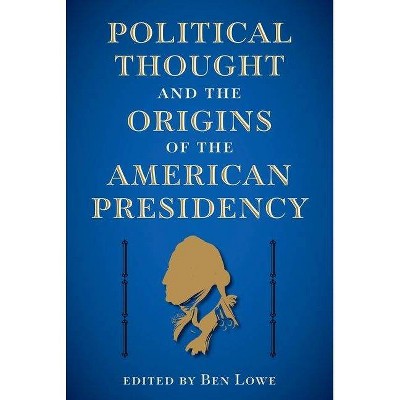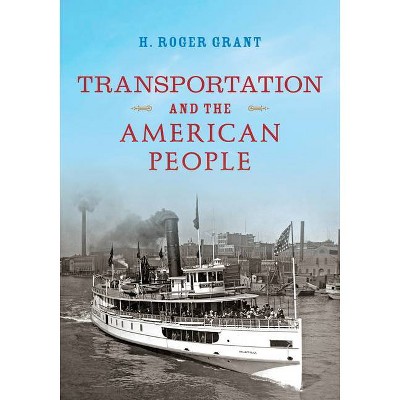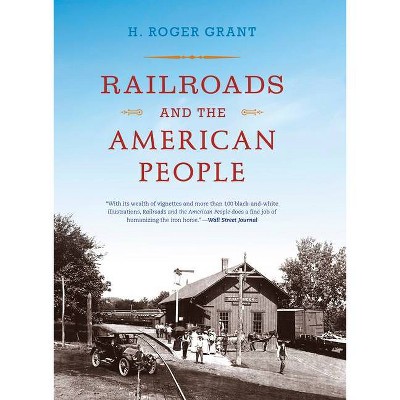The President and American Capitalism Since 1945 - (Alan B. and Charna Larkin Symposium on the American Presiden) by Mark H Rose & Roger Biles

Similar Products
Products of same category from the store
AllProduct info
<p/><br></br><p><b> About the Book </b></p></br></br>The book examines the development of the U.S. presidency since 1945 and describes the many ways, some of which are unknown or greatly underappreciated, in which the president's actions affect the daily lives of the American people.<p/><br></br><p><b> Book Synopsis </b></p></br></br><p>This volume describes the many ways presidential actions have affected the development of capitalism in the post-World War II era. Contributors show how, since Harry S. Truman took office in 1945, the American "Consumer-in-Chief" has exerted a decisive hand as well as behind-the-scenes influence on the national economy. And, by extension, on the everyday lives of Americans.</p><p>The Employment Act of 1946 expanded presidential responsibility to foster prosperity and grow the economy. However, the details and consequences of the president's budget often remain obscured because of the budget's size and complexity, perpetuating an illusion that presidents matter less than markets. Essays in this volume highlight the impact of presidential decisions on labor, gender discrimination, affirmative action, poverty, student loans, and retirement planning. They examine how a president can influence the credit card economy, the rebuilding of postindustrial cities, growth in the energy sector and the software industry, and even advances in genetic engineering. They also look at how economic gains in one particular area can have ramifications in other areas. National defense strategies have led to the privatization of weapons acquisition and the development of the modern research university to create a defensive brain trust among citizens. Policies aimed at supporting competitive American businesses--for example, in the biotech field--also affect the environment.</p><p>This book is an important contribution to the history of capitalism, articulating how the president--by supporting policies that promoted business growth in all sectors--has also helped domestic companies expand internationally and added to a global image of the United States that is deeply intertwined with its leading corporations.</p> <b>Contributors: </b> Brian Balogh - Roger Biles - Margaret O'Mara - Mark R. Wilson - Iwan Morgan - Brent Cebul - Elizabeth Tandy Shermer - Pamela Walker Laird - Allison Elias -Sean H. Vanatta - Andrew Meade McGee - Paula Gajewski - Tracy Neumann - Daniel Amsterdam - Gavin Benke - Bartow Elmore A volume in the Alan B. Larkin Series on the American Presidency<p/><br></br><p><b> Review Quotes </b></p></br></br><br>"Thought-provoking. . . . The work collected here beautifully captures the vitality and importance of the field."--<i><b>Journal of American History</i></b><br><p/><br></br><p><b> About the Author </b></p></br></br><b>Mark H. Rose</b>, professor of history at Florida Atlantic University, is coauthor of <i>Interstate: Highway Politics and Policy Since 1939.</i>
Price History
Price Archive shows prices from various stores, lets you see history and find the cheapest. There is no actual sale on the website. For all support, inquiry and suggestion messagescommunication@pricearchive.us



















